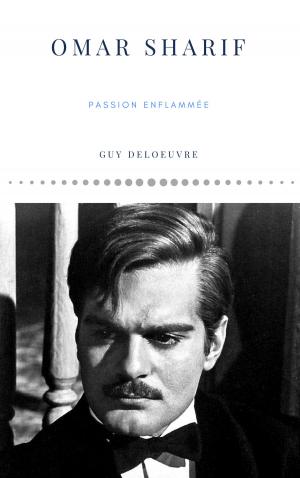| Author: | Honoré de Balzac | ISBN: | 1230003168684 |
| Publisher: | Guy Deloeuvre | Publication: | April 5, 2019 |
| Imprint: | Language: | English |
| Author: | Honoré de Balzac |
| ISBN: | 1230003168684 |
| Publisher: | Guy Deloeuvre |
| Publication: | April 5, 2019 |
| Imprint: | |
| Language: | English |
In Saumur, Félix Grandet (father Grandet) has built up, thanks to numerous land speculations, a fortune that is equal only to his avarice. He reigns as a tyrant over his entourage: his wife, his only daughter, Eugenie, and his servant Nanon. He locks everything up, and rations the whole house.
On this day in November 1819, a celebration is organized for the twenty-third anniversary of Eugenie. The Cruchots and the Grassins, two rival families who hope to marry one of their sons with Father Grandet's daughter, are invited.
Then comes Charles Grandet, the cousin from Paris whose charm and elegance do not leave Eugénie indifferent. Charles is surprised by the miserable aspect of his uncle's house. Eugénie falls in love with her cousin, and little by little the young man shares his tender feelings.
Charles carries a letter written by his father for his uncle, Father Grandet. We learn that ruined, and pursued by his creditors, he committed suicide. Charles doesn't have a penny left, but he doesn't know it. He is devastated by the pain of learning of his father's death. Far from being softened, Father Grandet despises this insolvent nephew. Eugene is shocked by his father's insensitivity.
The young man cries day and night for his father and all his misfortune. Eugenie, moved, donated all her money to her cousin: collector's items offered by her father. The purpose of this donation is to help Charles realize his project: to go to India to make a fortune.
Charles cries with happiness at Eugenie's kindness and gives her in exchange a golden toilet bag containing a portrait of her deceased mother and father.
After great oaths Charles and Eugenie exchanged a kiss and promised each other to get married. Then Charles sailed for India to make a fortune and erase his father's bankruptcy...
Life resumes, but Charles' departure leaves a big void in Eugenie's life.
On New Year's Day 1820, Father Grandet asked, as he does every year, to see all the gold he had given to his daughter.
When he learns of his disappearance, he explodes with anger. Despite his father's threats, Eugenie refused to reveal his secret. The old miser then decides to lock Eugénie in his room. Mrs. Grandet, who loves her daughter, is undermined by this decision. She gets sick and gradually weakens. When Father Grandet learned that, upon the death of his mother, Eugenie, the only heiress, could demand that the succession be shared, he decided to reconcile himself with his daughter.
In 1822, after two years of long martyrdom, Mrs. Grandet died exhausted. Grandet gets her daughter to renounce her maternal inheritance. Eugenie accepts and lives beside him, taking care of him. She waited in vain for news of Charles who did not write to her. Father Grandet initiated his line to his business, then, in 1827, died in turn, feverishly admiring his shields.
The rich Eugenics finally received a letter from Charles, in which he announced that he had succeeded in a money marriage. He married Miss d'Aubrion, whom he hardly likes, but who has titles of nobility. Eugènie then resigned herself to marrying the old president Cruchot de Bonfons. She only lays down two conditions: that this marriage remains blank and that he pays his uncle's debts.
When her husband died, Eugenie returned to her parents' house. Despite her fortune, she lived there in a small way, returning to her father's habits and devoting her fortune to charitable works. Lonely, despite her generous heart, she will lead a monotonous existence....
In Saumur, Félix Grandet (father Grandet) has built up, thanks to numerous land speculations, a fortune that is equal only to his avarice. He reigns as a tyrant over his entourage: his wife, his only daughter, Eugenie, and his servant Nanon. He locks everything up, and rations the whole house.
On this day in November 1819, a celebration is organized for the twenty-third anniversary of Eugenie. The Cruchots and the Grassins, two rival families who hope to marry one of their sons with Father Grandet's daughter, are invited.
Then comes Charles Grandet, the cousin from Paris whose charm and elegance do not leave Eugénie indifferent. Charles is surprised by the miserable aspect of his uncle's house. Eugénie falls in love with her cousin, and little by little the young man shares his tender feelings.
Charles carries a letter written by his father for his uncle, Father Grandet. We learn that ruined, and pursued by his creditors, he committed suicide. Charles doesn't have a penny left, but he doesn't know it. He is devastated by the pain of learning of his father's death. Far from being softened, Father Grandet despises this insolvent nephew. Eugene is shocked by his father's insensitivity.
The young man cries day and night for his father and all his misfortune. Eugenie, moved, donated all her money to her cousin: collector's items offered by her father. The purpose of this donation is to help Charles realize his project: to go to India to make a fortune.
Charles cries with happiness at Eugenie's kindness and gives her in exchange a golden toilet bag containing a portrait of her deceased mother and father.
After great oaths Charles and Eugenie exchanged a kiss and promised each other to get married. Then Charles sailed for India to make a fortune and erase his father's bankruptcy...
Life resumes, but Charles' departure leaves a big void in Eugenie's life.
On New Year's Day 1820, Father Grandet asked, as he does every year, to see all the gold he had given to his daughter.
When he learns of his disappearance, he explodes with anger. Despite his father's threats, Eugenie refused to reveal his secret. The old miser then decides to lock Eugénie in his room. Mrs. Grandet, who loves her daughter, is undermined by this decision. She gets sick and gradually weakens. When Father Grandet learned that, upon the death of his mother, Eugenie, the only heiress, could demand that the succession be shared, he decided to reconcile himself with his daughter.
In 1822, after two years of long martyrdom, Mrs. Grandet died exhausted. Grandet gets her daughter to renounce her maternal inheritance. Eugenie accepts and lives beside him, taking care of him. She waited in vain for news of Charles who did not write to her. Father Grandet initiated his line to his business, then, in 1827, died in turn, feverishly admiring his shields.
The rich Eugenics finally received a letter from Charles, in which he announced that he had succeeded in a money marriage. He married Miss d'Aubrion, whom he hardly likes, but who has titles of nobility. Eugènie then resigned herself to marrying the old president Cruchot de Bonfons. She only lays down two conditions: that this marriage remains blank and that he pays his uncle's debts.
When her husband died, Eugenie returned to her parents' house. Despite her fortune, she lived there in a small way, returning to her father's habits and devoting her fortune to charitable works. Lonely, despite her generous heart, she will lead a monotonous existence....















